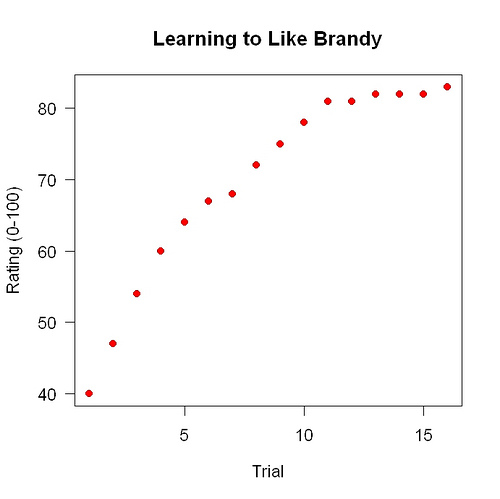Will Amy Winehouse — who won five Grammys last night — help or hurt the music industry? A few years ago, I went to a tasting event called The Joy of Sake. There were about 100 of the best sakes from Japan. A pre-event talk for retailers discussed the decline of sake in Japan. (Soju is cool; sake is old-fashioned.) That was the reason for the show. I loved tasting 30-odd high-quality sakes but the overall effect on me was the opposite of what the promoters wanted. I quickly became a connoisseur. I no longer liked the cheap stuff — ugh! But the stuff I did like was too expensive. I stopped buying sake.
Before last night I had heard of Amy Winehouse and I had heard Rehab, but hadn’t put the two together. Her Grammy performance blew me away. I watched a bunch of YouTubes of her. Back at the Grammys, I listened to an orchestra play Rhapsody in Blue. I used to like it; now it sounded awful. I listened to a few more group performances; they too sounded bad. Just as The Joy of Sake had made me no longer enjoy cheap sake, listening to a lot of Amy Winehouse had made me no longer enjoy “average” music — music where several individual performances are combined.
I thought of The Black Swan by Nassim Taleb. Taleb defined Mediocristan as situations where no one datum can have a big effect on the result. The average height of 100 people, for example. In Extremistan, by contrast, a single datum can make a big difference. The average wealth of 100 people, for example — one person can have much more money than the other 99 put together. Orchestras are Mediocristan, I realized; individual singers are Extremistan. In art, emotional impact is everything. Extremistan allows really big impact; Mediocristan does not. Maybe this is why classical music is dying.
I felt like throwing away half my CDs. I could use the space. Thanks, Amy!
